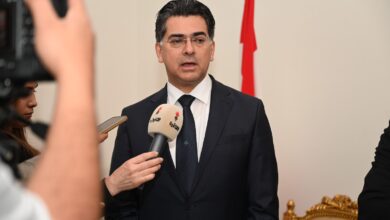
Iran attacked the Al-Udeid Air Base in Qatar, home to U.S. Central Command’s forward headquarters, in direct retaliation for recent American strikes on its nuclear facilities. The unprecedented move marks a dangerous escalation in the regional conflict, with Tehran vowing further response if provoked.
In a lengthy and defiant statement, the Iranian Armed Forces declared that the Islamic Revolutionary Guard Corps (IRGC) executed the attack under the operation code-named “Besharat Fatah”—or “Glad Tidings of Victory”—targeting what it described as “the largest strategic asset of the U.S. terrorist army in West Asia.”
“The Islamic Revolutionary Guard Corps, with the sacred code or Aba Abdullah Al-Hussein (PBUH), has targeted the Al-Udeid base in Qatar with a devastating and powerful missile attack,” the statement read. “This base is the headquarters of the Air Force and the largest strategic asset of the US terrorist army in the West Asian region,” reports Al-Rai daily.
The statement directly links the missile barrage to last week’s U.S. stealth bomber operation, which struck three Iranian nuclear facilities in what Tehran has labeled a “blatant military aggression” and a “clear violation of international law.” That operation was reportedly greenlit by former President Donald Trump, prompting outrage across Iranian political and religious circles.
Iran’s message to Washington and its allies was unequivocal: “The Islamic Republic of Iran… will not leave any attack on its territorial integrity, sovereignty, and national security unanswered under any circumstances.”
Citing divine sanction and national resolve, the Iranian Armed Forces warned that American bases and military deployments across the region are no longer strategic advantages, but “weaknesses” and “thorns” in a volatile environment Tehran now views as a legitimate battlefield.
The statement, issued on the eve of Muharram, also invoked religious symbolism, drawing parallels between the attack and the legacy of Imam Hussein (PBUH), a central figure in Shi’a Islam known for resisting tyranny. It described the strike as both a national defense and a spiritual act of resistance, aimed at weakening the influence of what Iran called “the warmongering regime” of the United States and its “Zionist extension.”
The government of Qatar responded swiftly. Majed Al Ansari, Advisor to the Prime Minister and Foreign Ministry Spokesperson, condemned the attack as a “flagrant violation” of Qatari sovereignty and international law, reaffirming the country’s right to retaliate directly and proportionally.
“We are reassured that Qatari air defenses thwarted the attack and successfully intercepted the Iranian missiles… All measures were taken to ensure the safety of workers at the base, including members of the Qatari Armed Forces, friendly forces, and others,” Al Ansari stated. No injuries or casualties were reported, and the base had been evacuated earlier as a precaution
This missile strike represents the first direct Iranian attack on a U.S. base in the Gulf and underscores how quickly the confrontation between the United States, Israel, and Iran has evolved from covert operations and proxy confrontations to direct military engagement.
The IRGC’s statement concluded with a chilling warning: “Any repetition of mischief will lead to the acceleration of the collapse of the US military pillars in the region… and the realization of the aspiration of the Islamic Ummah in eradicating the cancerous tumor of Zion.”
With each passing hour, fears are mounting that the Middle East is plunging into a multi-front war with global implications. Diplomatic calls for restraint are growing louder, but the actors on the ground appear increasingly committed to a path of confrontation.












